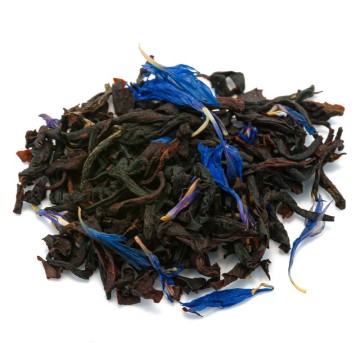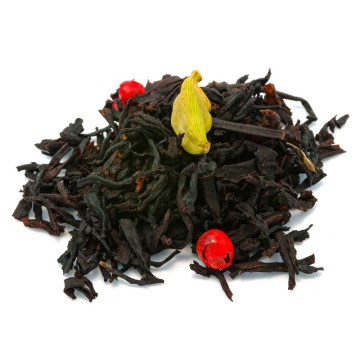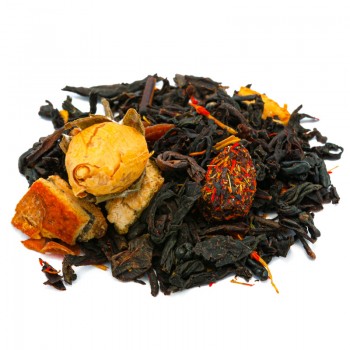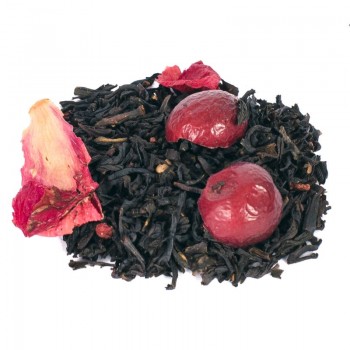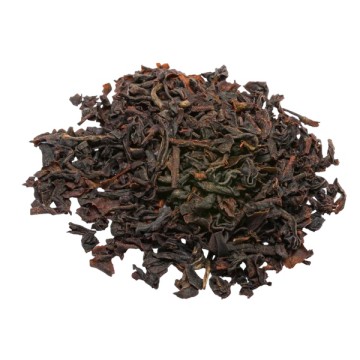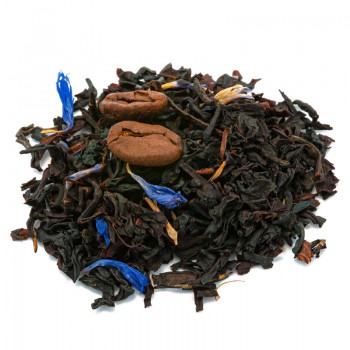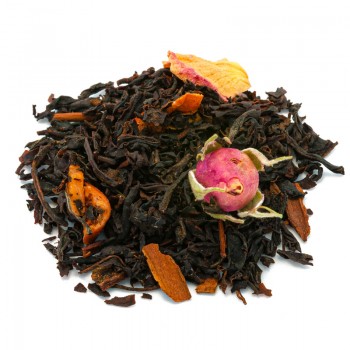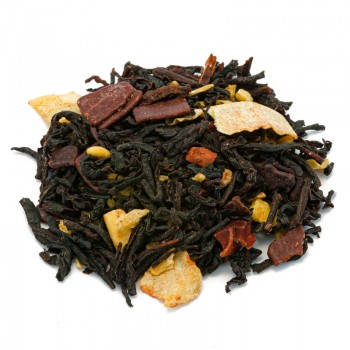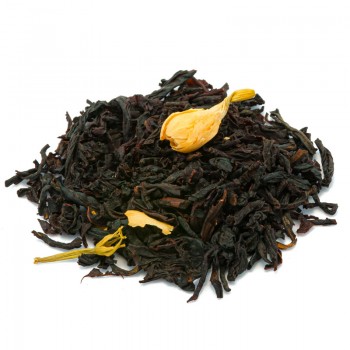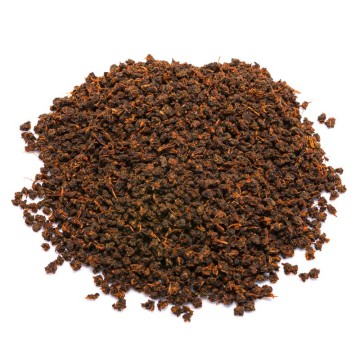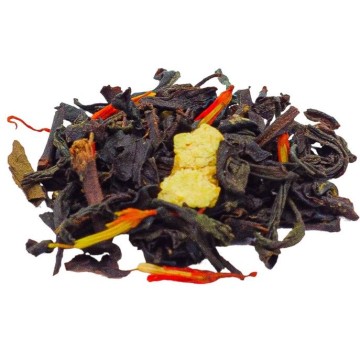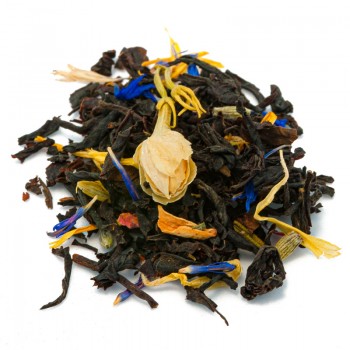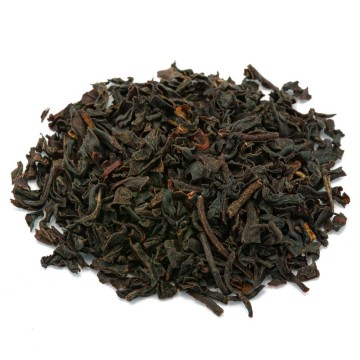It is one of the most prized teas, produced in the highlands of Sri Lanka, formerly known as Ceylon. Like other teas, it is obtained from the dried leaves of Camellia sinensis, but differs in its full-bodied flavor and fragrant aroma, due to the environmental conditions in which the plant is grown. Ceylon black tea is highly prized by tea lovers for its rich, full-bodied, and creamy flavor, with a floral aftertaste, a hallmark of its high quality. It imparts a slight astringency and a lingering finish on the palate, but is neither harsh nor bitter. Its aroma offers citrus notes and floral hints. It is also loved for its vibrant color, ranging from bright orange to reddish-brown. Sipping Ceylon tea becomes a uniquely pleasurable experience, thanks to its smooth flavor profile that makes it intense yet relaxing.
Ceylon Tea Properties and Benefits for the Body
This tea is known for its high antioxidant content, with a higher concentration of compounds including myricetin, quercetin, and kaempferol. These molecules can counteract oxidative damage to cells, also promoting anti-aging effects. Like all black teas, thanks to its oxidation process, it contains complex polyphenol antioxidants, theorubicins and theoflavins, which are useful against cellular aging. Furthermore, Ceylon black tea provides the body with various trace minerals, including magnesium, manganese, and chromium.
It contains nutrients similar to classic black tea, which, like caffeine, stimulate the metabolism, aid fat burning, and reduce fat absorption. A support for those seeking weight loss, as part of a balanced diet.
Also on a digestive level, Ceylon black tea promotes food assimilation. Thanks to its polyphenols, it promotes intestinal function and regular bowel movements. Antioxidants maintain the overall well-being of the digestive system, encouraging the growth of healthy bacteria (microbiota). As a tonic to combat physical and mental fatigue, Ceylon black tea is an excellent energy drink, stimulating the nervous system. Its caffeine content is adequate to promote attention and concentration; at the same time, black tea releases polyphenols and the amino acid theanine, with relaxing properties that balance the active ingredient in caffeine and dilute its stimulating effects over time. By reducing the immediate stimulant effect, they prevent the excessively stimulating effect of coffee (which can have a negative impact on the cardiovascular system and blood pressure).
What are the nutritional values of Ceylon tea?
These leaves contain antioxidant compounds—flavonoid polyphenols, catechins, and flavanols. They provide B vitamins, enzymes, and minerals, tannins, and amino acids. Furthermore, this tea provides the body with alkaloids including caffeine (theine), theophylline, and theobromine.
How to make Ceylon black tea infusion
Preparing this black tea is simple. Simply pour 90-95°C hot water into a cup (250 ml), then steep about 3-5 grams of Ceylon black tea leaves. Cover with a lid and let steep for 3 to 5 minutes before drinking. Remember that the longer the tea leaves are steeped, the higher the caffeine content and the more intense the flavor. Adjust according to personal preference.
Where can I buy Ceylon black tea?
It's available in our online tea shop, Natura d'Oriente, where you'll find this black tea variety in convenient, stay-fresh 25g, 50g, 75g, 100g, 150g, and 300g packs. Loose Ceylon black tea allows you to calculate the exact amount of product you need for your cup or teapot.
What is Ceylon? Origins and history of Sri Lankan tea
Ceylon tea comes from the cultivation of the tea plant (Camellia sinensis), historically located on the island of Sri Lanka, formerly known as Ceylon. Its name was given when it was a territory under British rule, which brought the first tea plant from China to the island in the early 19th century. From the middle of the century, thanks to the work of Scotsman James Taylor on the Loolecondera estate, tea began to be successfully cultivated and produced on the island.
Ceylon tea is differentiated from other types of tea by the characteristics endowed by the Sinhalese island environment. The region's tropical climate, the rainfall of the central highlands, the acid-rich soils, and the high altitude are ideal for tea production; they impart a series of beneficial ingredients to the Ceylon variety.
Over time, Ceylon has earned and maintained a reputation as one of the finest teas in the world. Furthermore, even lower-altitude areas began to produce teas with distinct characteristics.rticular, and today Sri Lanka (independent since 1948) has become the world's leading tea exporter. Each district produces a fine tea, dependent on the island's different climates and specific processing and production methods. Today, this tea is available in oolong, green, white, and Ceylon black varieties.
Ceylon black tea, in particular, undergoes the complete oxidation process originated in China, which maintains and improves its flavor over time – it can be stored for long periods. For this reason, black tea was favored by British traders, who planted it in both India and Sri Lanka.
Ceylon black tea: effects and contraindications
This tea can be a useful dietary beverage but should be consumed in moderation, as it contains caffeine (theine). Although Ceylon tea has a lower caffeine content than beverages like coffee, excessive doses can trigger side effects such as nervousness, insomnia, high blood pressure, and digestive problems (diarrhea, stomach pain, gastritis). Furthermore, caffeine can interact with some medications used for heart disease and asthma. For these reasons, it's best to keep intake to moderate levels (2-3 cups per day).

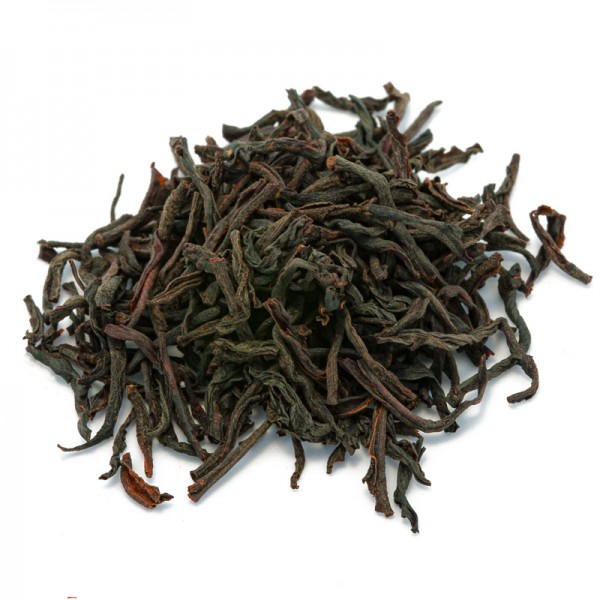









 No reward points for this product.
No reward points for this product.
![black tea Irish Rum [Natura d'Oriente]](https://www.naturadoriente.com/3388-home_default/black-tea-irish-rum-.jpg)
